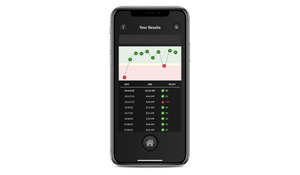Executive Summary: ConGlobal Case Study
Addressing Fatigue and Impairment Risk with Predictive Safety’s AlertMeter® and AlertMeter® FRMS
Predictive Safety recently completed an extensive case study with our client ConGlobal. Below is an executive summary and a link to download the entire case study.
Click Here to Download The Whole Case Study
ConGlobal, a leading provider of terminal and yard operations, employs 2,000 operators across 40+ locations. In these high-risk environments, fatigue and impairment- whether from long hours, rotating shifts, or personal stress- pose major safety challenges.
To support its Zero Harm initiative, ConGlobal adopted AlertMeter®, a daily 45-second cognitive assessment, and AlertMeter® FRMS, a predictive fatigue risk system using real-world data like work history and circadian rhythm alignment. Together, these tools identify potential risks in real time and enable managers to respond proactively.
After a successful pilot at six sites, ConGlobal scaled the program enterprise-wide. Early hurdles like worker buy-in and infrastructure gaps were addressed through strong safety leadership, frontline engagement, and sustainability plans built on clear KPIs, training, and accountability. The results speak volumes.
TRIR Reduction (Pilot Sites):
Across the six pilot locations, Total Recordable Incident Rate (TRIR) dropped 58%, from 5.98 to 2.5 between 2022 and 2024.

Fatigue Exposure Decrease:
High/severe fatigue work hours were cut in half, decreasing from 7.2% to 3.6% in just one year—even as the number of workers at pilot sites increased from 317 to 449.


Injury Frequency Rate Comparison:
Pilot sites using AlertMeter® had a lower IFR (1.8) compared to 2.3 at other locations without the system.

Fatigue Risk Visibility Improved:
As AlertMeter® expanded to more sites, detected high-fatigue hours more than doubled- from 1.0% to 2.2%- highlighting unseen risks previously missed by scheduling data alone.

Company-Wide Safety Gains:
ConGlobal’s enterprise-wide TRIR fell from 3.44 in 2022 to 2.16 in 2023, then again to 1.98 in 2024. These consistent safety gains reflect the expanded use of AlertMeter® and its integration into daily safety culture.



